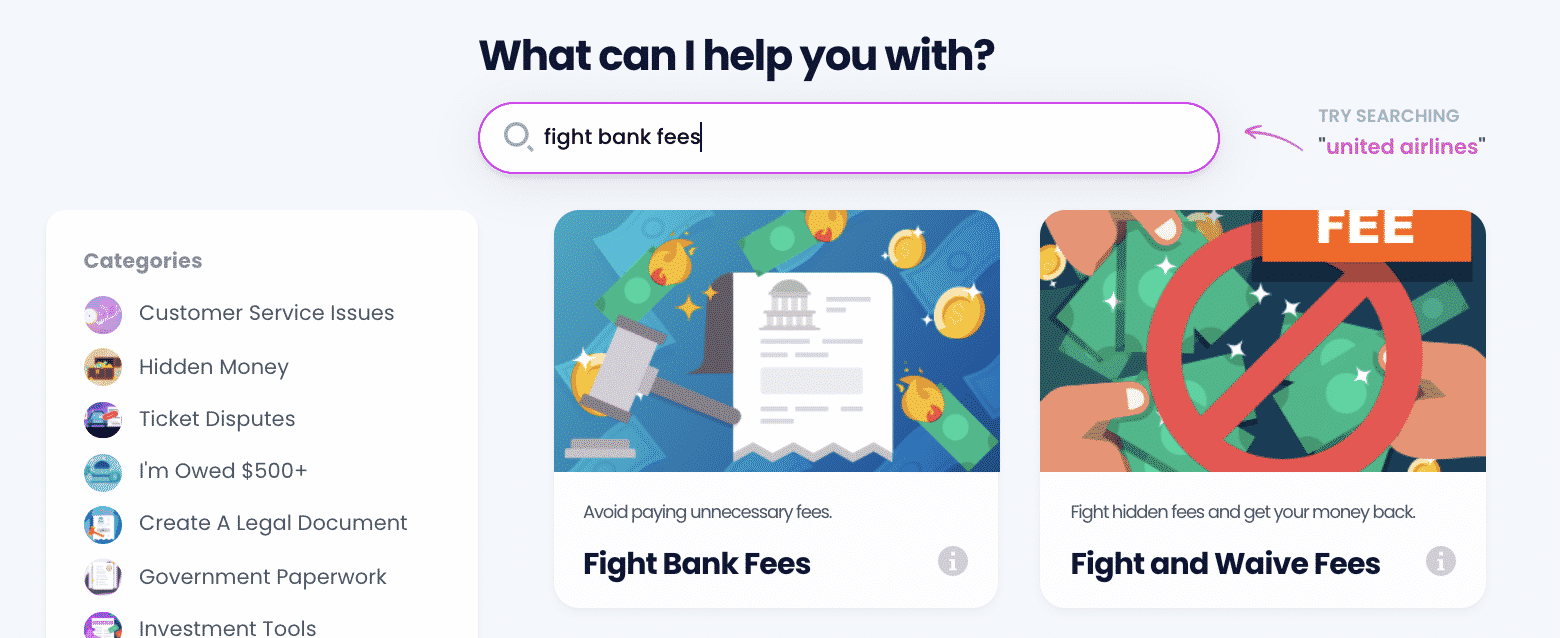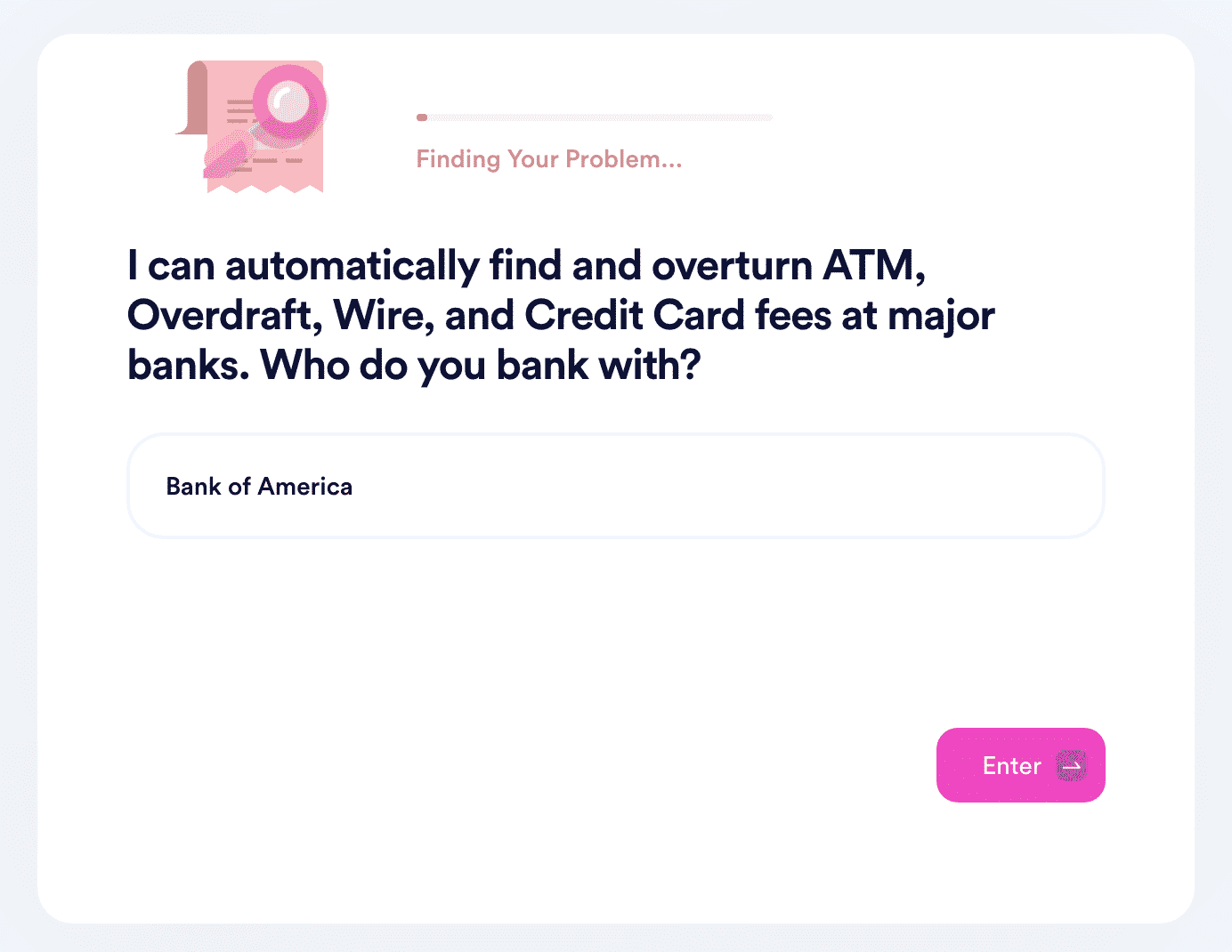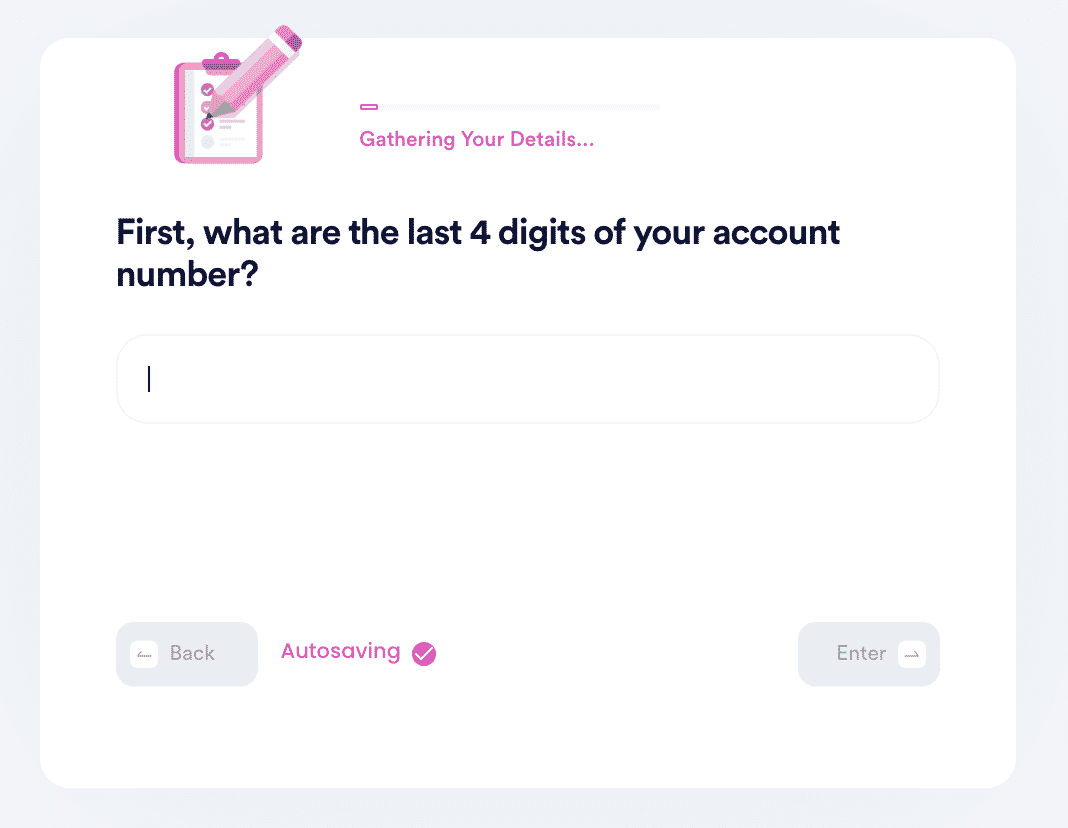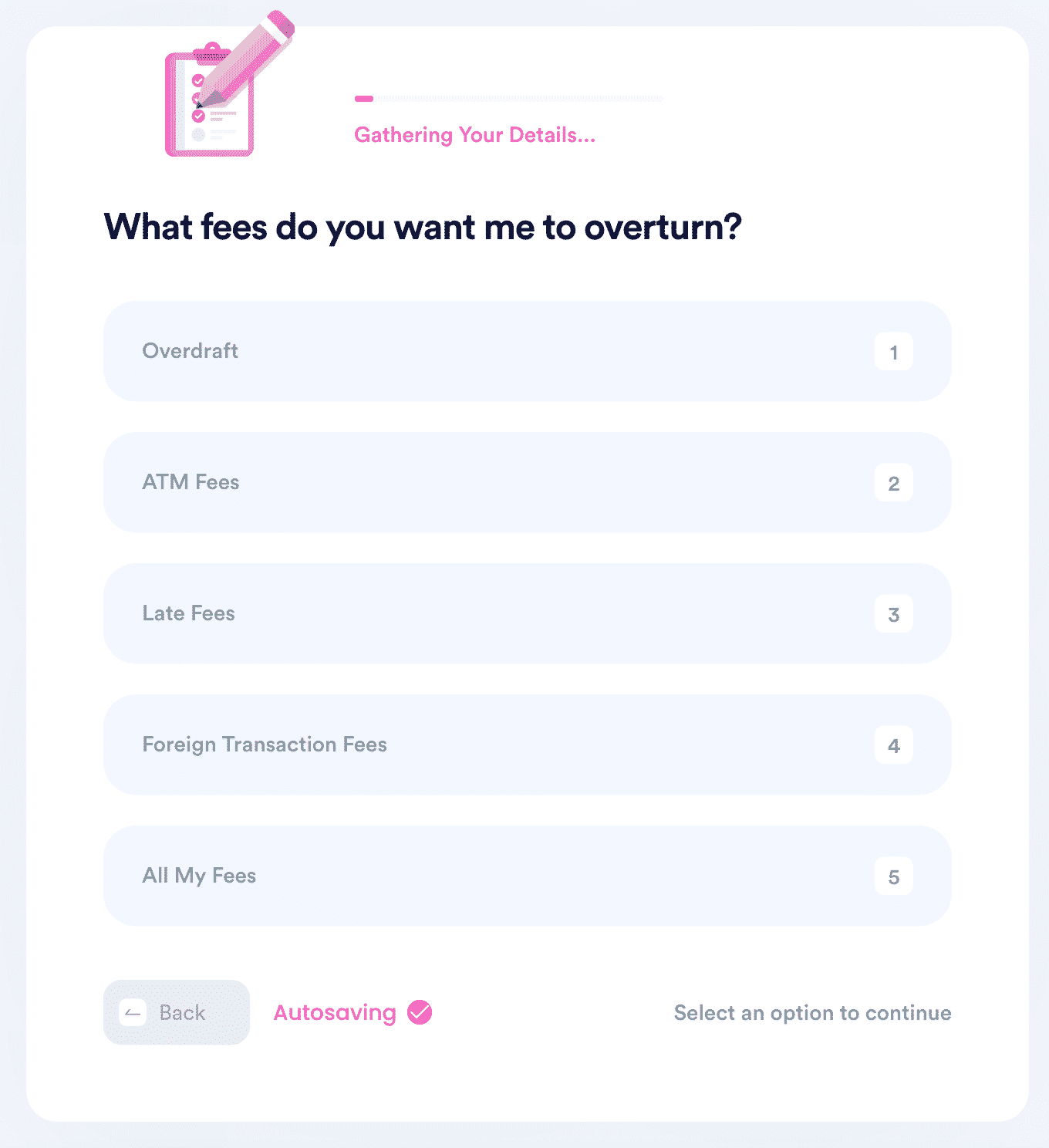How to Appeal TD Bank Account Closing Fees
When you open a savings or checking account with a bank, the majority of the time you'll pay for hidden fees while that account is open. Should you ever choose to close that account, you may pay a closing fee depending on the type of account and your bank's policy. Many of these fees can be avoided or refunded if you talk to the right employee at your bank.
Want to get your waived and close out your account with ease? DoNotPay can help you get refunds on all types of bank fees, including international, overdraft, ATM, wiring, closing, and more.
Types of TD Bank Account
Depending on the type of account you have with TD, fees will vary. The most common fees associated with accounts at TD Bank are differentiated between personal and business accounts, and include:
- Checking
- Savings
- Tiered checking
- Essential Banking
- Money Market
- Private CDs
Most accounts with don't require a minimum amount to open the account but they do have a monthly maintenance fee. This maintenance fee doesn't go towards transfers and transactions. Instead, it acts as a hosting fee since TD is providing you with an account. Depending on the type of account, TD may waive the monthly service fee.
- Beyond Checking - $25/mo
- 60 Plus Checking - $10/mo
- Convenience Checking - $15/mo
- Simple Checking - $5.99/mo
- Essential Banking - $4.95
- Private Tiered Checking - N/A
- Simple Savings - $5/mo
- Growth Money Market - $12/mo
- Beyond Savings - $15/mo
- Private Tiered Savings - $15/mo
- Private CDs - N/A
Why Do I Pay These Bank Fees?
Many banks charge service fees to make up for the cost of operations. Most of the time, bank fees are associated with the cost of service for hosting accounts, accessibility to ATMs, secure transfers to other accounts or other banks, overdraft charges, and other services. For example, when a bank lends you a loan, you pay interest as well as a small transaction fee for the service of providing the loan, sending money to a specific account, and then the length of time it'll take for you to pay back the money borrowed. Bank fees allow banks to make a profit and help them continue offering the services we all utilize.
Another type of bank fee is the bank account closing fee. Here are some potential costs associated with closing a bank account:
| FEE | COST | REASON FOR THE CHARGE |
| Wire transfer fee | Domestic outgoing: $24 to $35
Domestic incoming: $15 to $20 Plus a service fee: Amount depends on the bank | If you transfer any remaining funds from your old account to your new one, you may incur this charge. Both the old and new banks may charge you for the wire transfer. |
| ACH Transfer Fee | $0 to $5 | The automated clearing house (ACH) is an electronic fund-transfer system in the US. You may incur this charge if you transfer the remaining funds from your old account to your new one. |
| Early Account Closure Fee | $10 to $50 but can also be pro-rated depending on the age of your account or a flat-rate charge | You may incur this charge if you close the account before it reaches a certain period of maturity. |
| Overdraft/NSF Fee | $27 to$35 | You may incur this charge if any checks or automated payments bounce. |
| Stop Payment Fee | $30 to $36 | If you request any stop payments on checks you’ve issued from the old account, you may incur this fee. |
| Monthly Maintenance Fee | $2 to $16 | You may incur this charge if your balance with the old account is below the minimum daily requirement while you’re transitioning to a new account. |
What Types of Bank Fees Can I Get Refunds for With DoNotPay
Many of the account types you can have with TD Bank will waive fees if you meet the minimum daily balance for the account type. For checking accounts, you need to maintain a daily balance of $100-$250, depending on whether you have a Plus or Convenience Checking account, to have monthly service fees waived. Other accounts, such as savings accounts, require you to maintain a greater balance to have fees waived.
One type of service that TD Bank does not charge a fee for is to close an account. A few things to keep in mind when closing your bank account:
- The financial brokerage will not allow you to close any account that does not have a zero balance unless you visit the bank in person or mail-in written consent.
- If you choose to mail a letter requesting your account be closed, they may contact you to tell you that the letter needs to be notarized or request that you visit in person to collect any remaining money in your account.
- Should you plan to have your money transferred to another account before closing it, make sure you provide TD with that account information and be prepared to pay a small transaction fee to transfer the money.
- In most situations, you'll need to provide proof of ID and fill out physical or electronic forms stating that you're requesting to close your account.
Feeling a little confused and unsure about what fees you're paying TD? You could be losing money on bank fees that could be waived. Luckily, DoNotPay can help you fight these charges and help you take the steps to close out your account, request a refund on wrong fees, and much more.
How to Get TD Bank Fees Waived With DoNotPay
If you want to Get Waived but don't know where to start, DoNotPay has you covered in 4 easy steps:
- Open the DoNotPay Fight Bank Fees product.

- Enter the name of your bank.

- Verify the last 4 digits of your bank account.

- Choose which fees you want to waive, including overdraft, ATM, and transaction fees.

What Else Can DoNotPay Help With?
DoNotPay can help you fight banks fees for most banks nationwide. If you have an account with another financial brokerage and want to get overdraft refunds, avoid ATM fees, or find out what fees you might be paying, DoNotPay has you covered. Below you'll find a few of the many services we offer to help ensure your money stays in your account for purchases you want to make.
Guides for Overdraft Fees
- Wells Fargo
- Citizens Bank
- Fifth Third
- Banks Without Overdraft Fees
- Chase Bank
- Bank of America Overdraft Refunds
Guides for Other Types of Fees
 By
By